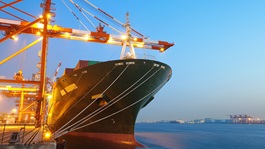Publication
South by Southwest Headwinds for Tech
This week’s South by Southwest is one of the biggest tech events in the world, boasting 75,000 delegates and 5,000 speakers.


Global | Publication | March 2019
Lawyer jobs being taken by robots is a popular media theme these days. However, after having attending the South by Southwest (SXSW) technology conference last week, I think the robots may, in fact, be needing us. In the next few years, technology will take us to a level of complexity that is almost unimaginable. That complexity will stretch our existing legal frameworks and require highly skilled lawyers to navigate outcomes.
SXSW is one of the most important technology events on the global calendar. More than 75,000 delegates descended on Austin, Texas, to hear over 5,000 speakers ranging from IT company execs, Hollywood celebrities and no less than six 2020 presidential candidates, including Starbucks CEO Howard Shultz. The big tech companies pay millions to completely transform sleepy restaurants into “Experience Spaces” to capture the eye of SXSW’s young “influencer” crowd. In fact, the event has been called the “Millennials’ Woodstock.”
The big theme from the event was the ubiquity of Artificial Intelligence (AI). Eminent futurist Amy Webb was asked at the end of her session on tech trends — attended by more than 2,000 people — why she had not mentioned AI. She said the answer is simple: “AI is in everything and every industry, now and in the future.” AI was everywhere at SXSW — in sessions from healthcare, transport and finance, all the way to storytelling. So too was the concern about bias in AI, with at least six sessions dealing with this topic in whole or in part.
Publication
21 airlines (the Airlines) have committed to change their practices on environmental claims and statements that were considered misleading by the Consumer Protection Cooperation (CPC).
Publication
For the sustainable aviation fuel (SAF) industry, the key initiative to emerge from COP30 was the “Belém 4x Pledge”, spearheaded by Italy, Japan, India and Brazil and supported by 23 other countries, to quadruple sustainable fuel production and use by 2035. The pledge focused on the need to take comprehensive domestic action to support sustainable fuel development and strengthen international collaboration, whilst ensuring that efforts to scale-up production are conducted in an environmentally and socially responsible manner.

Publication
In King Crude Carriers SA & Ors v Ridgebury November LLC & Ors [2025] UKSC 39, the Supreme Court overturned the Court of Appeal and held that the claimant sellers (the Sellers) were not entitled to claim the deposits promised under sale contracts as a debt
Subscribe and stay up to date with the latest legal news, information and events . . .
© Norton Rose Fulbright LLP 2025